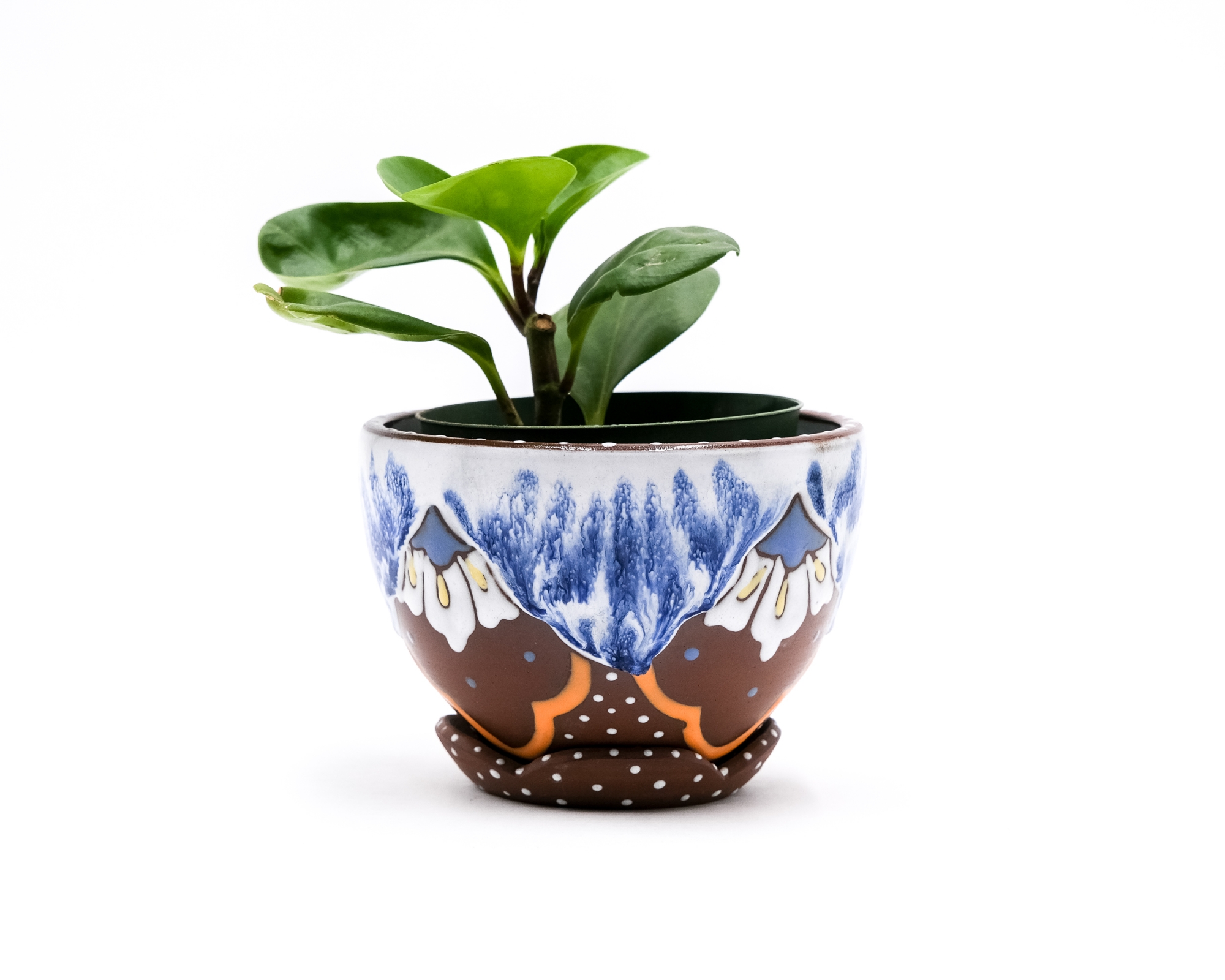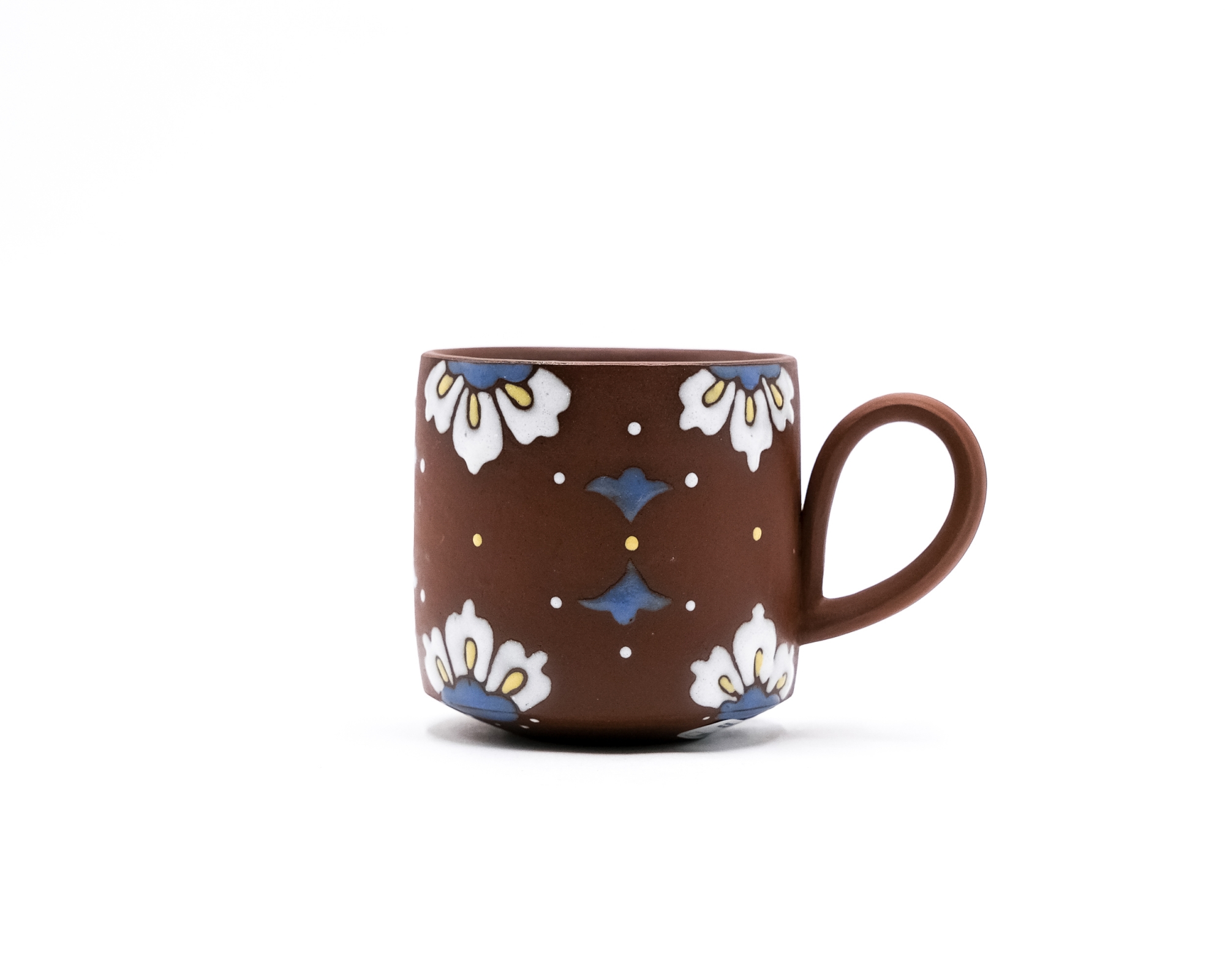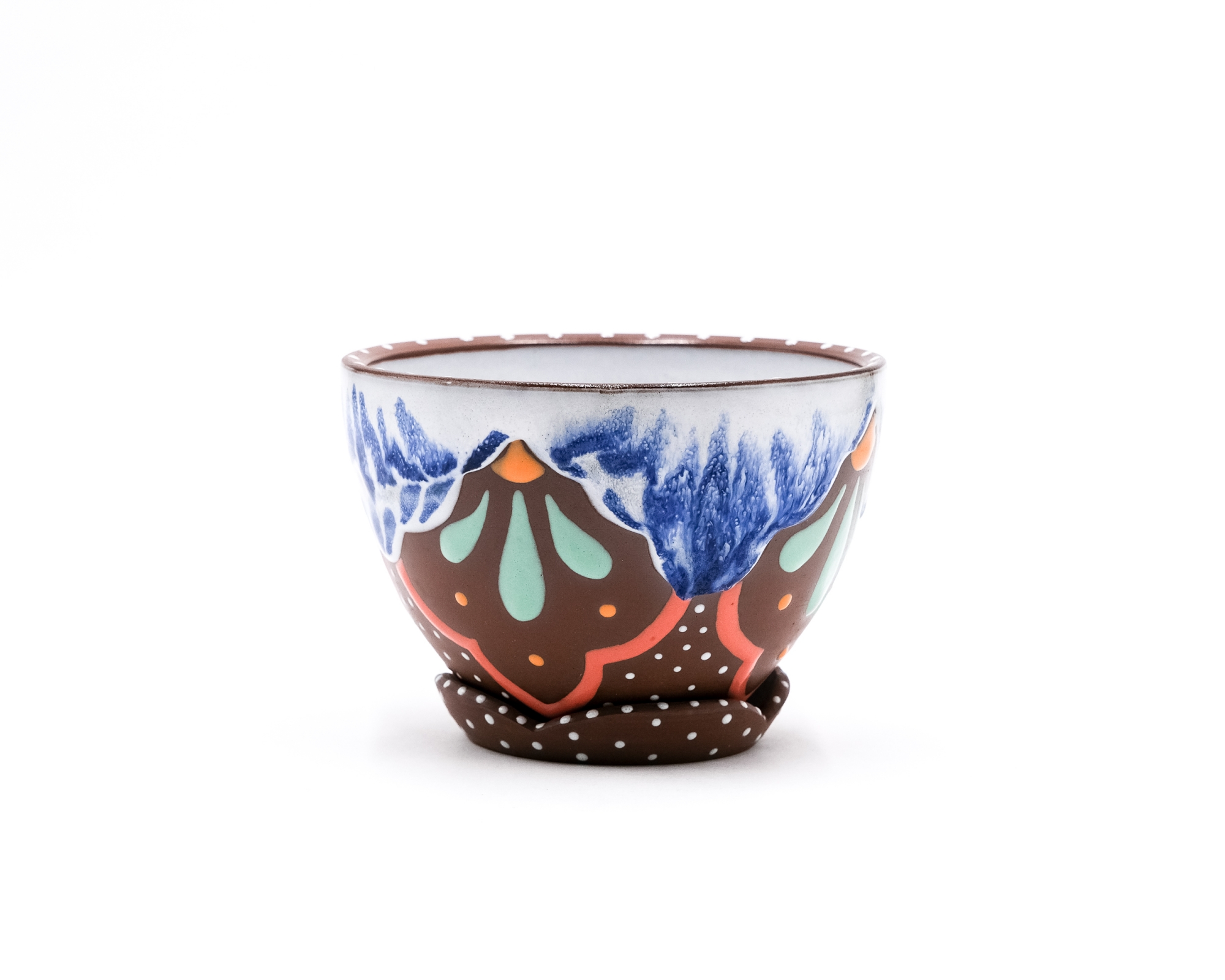Nicole McLaughlin
Nicole McLaughlin
Nicole McLaughlin was born and raised in Massachusetts but spent much of her early childhood in Mexico. As a first generation Mexican-American, she is heavily influenced by her multicultural upbringing and her childhood memories of visiting her mother’s home town of Cuernavaca, Mexico. Nicole received her Bachelor of Fine Arts from the Kansas City Art Institute in Kansas City, MO. She has exhibited nationally, internationally, and has work in several private collections. Currently, she serves as the Ceramics Teaching Fellow at Tabor Academy in Marion, MA. Nicole continues to draw inspiration from Mexican ceramics, textiles, and cultural traditions in hopes of showing how her life has been shaped by a collision of two cultures.
As a product of an American father and a Mexican mother, I am influenced by the conflicting expectations I have received as a woman within the two cultures. My studio practice, a ritualization that celebrates and questions my cultural inheritance as a woman, depicts the dichotomies of my heritage through the combination of ceramics and fiber. With a manipulation of traditional processes and materials of domesticity, I begin to bridge the misunderstandings present between the maternal generations of my lineage.
The vessel, symbolically tied to the traditions and expectations of womanhood, acts as a canvas for a discussion between materials and processes deeply rooted in the craft traditions of Mexico. The utilization of these processes explores Mexico’s deep history of class and culture within my own heritage. The use of fiber in combination with ceramic speaks powerfully to how we view utilitarian objects and the experiences associated with them. Symbolically, a vessel keeps not only the physical within but the ephemeral memories of life long after they have passed. The vessels in my work are not meant as objects of utility, instead they serve as vehicles for fiber. As the fiber flows from, weaves into, or frames the ceramic, it distorts the functionality but becomes a meaningful component as plate and cloth merge. The vessels contain an expression of femininity and an essence of personal and cultural history.
My studio practice engages in the preservation of craft traditions by bringing them to a contemporary space. Continuing the conversations woven into the tapestry of Mexican craft, I pick up the threads of those who came before and add my own voice. Through an introspection of values, I begin to understand how clay and fiber directly relate to my lifestyle, cultures, traditions, and expectations. I simultaneously question and celebrate my identity as a woman across the generational and cultural boundaries in my life.










































